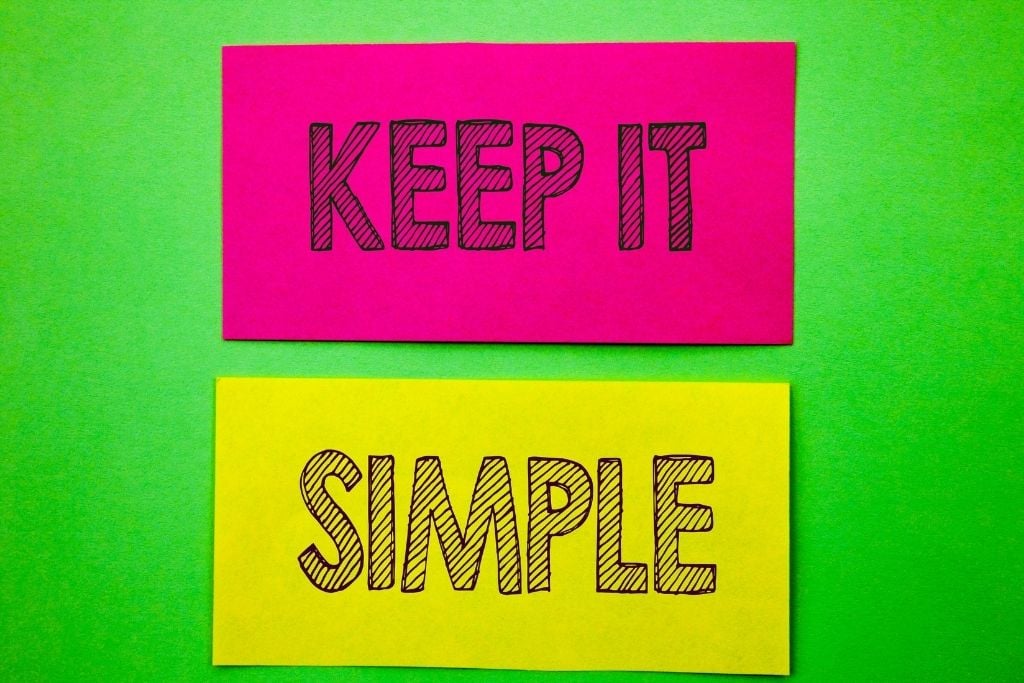
We live in a society where people prefer to be nice rather than truthful. But this niceness is not what will help the person improve. On the contrary, the niceness will help you avoid conflict. Many people prefer to dodge the face-off because it means giving a frank opinion and risking your relationship with the person on the other side.
This risk may be temporary but it does exist. However, sooner or later, the truth does manage to find a way out. In fact, later, many people are hurt when confronted by the truth. So then ask yourself, if the frank opinion/truth is eventually going to pinch the other person, what is the use of covering it up with niceness in the beginning?
What is the meaning of ‘Say what you mean and mean what you say’?
‘Say what you mean and mean what you say’, is a trait of an effective communicator. Now you may wonder what is so special about effective communication skills. I mean most of the time, we do say what we want, don’t we? But saying what you mean is a little different.
It implies that you say things that you wholeheartedly believe in. When this happens, you automatically mean whatever you said. The weight in your conversation usually comes from your belief in the idea.
TIP
If you want people to believe what you are saying, you need to start by having complete faith in whatever you are saying. After all, you can’t get people to follow you when you are pursuing a half-baked idea.
There are few people in the world who believe in openly speaking their minds, irrespective of the situation. These people usually don’t bother even if their honesty tends to offend the person on the other side.
For most of the others, the easy way out is to run away from the conversation and avoid the topic for as long as possible. Both these behaviors are at two extremes. In order to be effective as well as an authentic communicator, you need to find the right balance between the two types.

How to Practice ‘Say What You Mean and Mean What You Say’ and Be an Effective Communicator?
Words are extremely powerful in personal and or professional relationships. Therefore, it is very important to think carefully before you speak. Your actions must be justified by careful evaluation of what the other person has said or done. This will ensure that you say what you mean and mean what you say.
The words will be more impactful. Even the conversations are likely to end up with a positive outcome. In fact, you will be surprised at the outcomes of your conversations once you start practising this. However, it is not easy to teach the mind. It will take effort and perseverance to see the changes happen.
Here are a few simple ways to becoming an effective communicator by saying what you mean and meaning what you say:
1. Understand the outcome

SUMMARY
Say what you mean and mean what you say, but before you decide to enlighten people with your feedback, it is important to understand the outcome that you expect.
When you are about to give feedback to someone, you need to be clear in your head about the outcome to expect. Do you expect the other person to change their ways or do you just want them to be aware? You need to seek the answers to these questions. Depending on these answers, you can decide the tone of your conversation.
CAUTION
Do not try to keep the same tone for all types of conversation else the person on the other side may never be able to prioritize the feedback that you are trying to give.
2. Say it when the time is right

SUMMARY
So you may have a lot to say but if the other person is not willing to hear it, the purpose will be defeated.
In order to be an effective communicator, it is important that the person on the other side is impacted by what you are saying. Therefore, ideally, you should seek the permission of the other person to share your inputs. If you cannot ask for permission, at least figure out the right time to do so.
3. Keep it simple

SUMMARY
Remember that you are sharing feedback for one particular instance, so say what you have to by sticking to the facts.
It is not uncommon to say a lot of things before actually getting to the point. But if you intend to say what you mean, beating around the bush may be a bad idea. Stick to the hardcore facts and keep it simple.
TIP
A good way to handle the conversation would be to give your opinion in a subtle way and then ask whether the person is interested to hear more about how things could be handled differently.
4. The reaction is not your responsibility

SUMMARY
When you give your opinion, the other person may or may not react appropriately.
When you share your views on someone’s actions, the other person may not react as you would expect them to. Well, that is okay. You can’t be responsible for their actions. You can only do your bit by being an effective communicator.
5. Step into the other person’s shoes

SUMMARY
Just like you have something to say, others may also have an opinion to share.
When you give feedback, you have to be open to understanding the other person’s perspective. Step into their shoes and make a genuine attempt to understand their viewpoint.
6. Mind your language
Summary
What we say is important. But how we say it is also crucial
Everything from your tone to the twitching of your eyes and your facial expressions, the nervous shrug of your shoulders plays a crucial role in determining the impact of your conversation. In order to mean what you say, it is important to support your conversation with a firm and equally confident body language.
7. Be calm
Summary
Agitation never helped prove a point or convince the other person.
If you intend to strongly convey what you mean, stay calm while doing so. When we are agitated, the process of thinking or evaluating is often bypassed. Your thoughts, feelings, and emotions can impact what you say. This is dangerous because the speech that follows may not be as convincing.
8. Choose words
Summary
Just like the tone of your conversation, you need to choose your words carefully.
The key to an effective conversation is hidden in the words that you choose to convey your thoughts. A good way to do this is to keep learning new words and improving your vocabulary.
9. Speak clearly
Summary
A good way to ensure that your thoughts are conveyed clearly is to speak clearly.
You need to be clear about your thoughts and accordingly your speech. The clarity in conversation makes it easier for the other person to believe in your ideas. During the process, be open to taking questions as well. Shying away will do you no good. Also, don’t forget to look for non verbal cues while communicating.
10. Control your emotions
Summary
You need to be comfortable with your emotions in order to make a sensible conversation.
While saying something do not hold back on your emotions. In fact, be natural and embrace the emotions that you experience. Your emotional intelligence will help you stay invested in whatever is being said. This also means good mental health is crucial to a good conversation.
11. Don’t be offensive
Summary
Do not expect everyone to agree with what you say. Be polite and accept a difference of opinion.
When others do not agree to what you are saying, don’t be offended. In fact, take their feedback, reevaluate if required. Accordingly, frame your views in a manner that it does not offend the others around you. Remember that maintaining eye contact while speaking is important.
12. Learn from observation
Summary
You need to be sharp and observe things around you as they progress in order to speak sensibly.
If you intend to say what you mean, observe every detail around you. Remember there are many things that can impact your conversation and if you are not observant, you will end up missing many of them.
13. Be organized
Summary
Chaos never leads to a favorable conclusion. You need to organize your thoughts and be absolutely clear about when to say what.
Meaningful conversations depend on how well you can say what you intend to say. Therefore, it is very important to carefully organize your thoughts. Figure out the right time to say the right words and you will mean exactly what you say.
14. Show empathy
Summary
Sometimes the situations around you may nudge you to modify the conversation. At such times, you must be malleable.
In order to say what you mean and mean what you say, it is important to be an empathetic listener. Show the willingness to adapt to the situation and make meaningful conversation.
15. Be open and honest
Summary
Do not restrict your mind to your opinion alone. Keep it open
Keeping an open mind allows you to say what you mean. Learn to open your mind to feedback and other people’s point of view. This is an extremely important point to communicate effectively in the long term.
Say What You Mean: 10 Quotes
Nothing like the wise words of wise men to help you stay motivated in life. Here are a few quotes.
1. “You never know when a moment and a few sincere words can have an impact on a life.”
– Zig Ziglar

This quote beautifully explains the importance of using the right words and influencing the people around you in a positive way.
2. “Who you are is speaking so loudly that I can’t hear what you are speaking.”
– Ralph Waldo Emerson

The way you communicate speaks volumes about your personality. If you want people to hear what you are saying, it is important to have a pleasing personality.
3. “When you start communicating to change people, you leave a lasting legacy. You profit from your impact, no in spite of it.”
– Dr. Michelle Mazur

Wisely choosing words ensures that your communication conveys your ideas, impacts people and the world around, in a positive manner.
4. “What will they think of me? Must be put aside for bliss.”
– Joseph Campbell

When you initiate a conversation, just believe in your ideas and stop worrying about what others will say.
5. “Don’t be embarrassed by your failures. Learn from them and start again.”
– Sir Richard Branson

Every failure is an opportunity to learn and improve. Don’t be disheartened by setbacks. Instead, learn from them and move on.
6. “Wise men talk because they have something to say; fools, because they have to say something.”
– Plato

It is important to carefully evaluate the impact of your words before you actually say them.
7. “Emotional awareness is necessary so you can properly convey your thoughts and feelings to the other person.”
– Jason Goldberg

It is important to be emotionally aware of how your words can impact the other person’s life. This will ensure that your words are able to uplift others around you.
8. “Communication sometimes is not what you first hear, listen not just to the words, but listen for the reason.”
– Catherine Pulsifer

Being an active listener is one of the first steps to ensuring that you say what you mean.
9. “Replacing paper with a PC screen doesn’t change the need for clear, precise communication.”
– Kenneth Roman

In today’s technologically driven world, we communicate extensively through mails, messages, etc. But this does not change the fundamental requirement for clear and precise communication.
10. “The single biggest problem in communication is the illusion that it has taken place.”
– George Bernard Shaw

If you intend to have a meaningful conversation, do not leave anything to the other person’s assumption. Clearly convey every detail in order to influence positively.
Concluding note
Being honest is not an easy job. In most cases, we don’t get to learn how to be honest without hurting the sentiments of the person on the other side. Remember back in school, it was considered rude to oppose / question whatever the teacher said. This is changing now, changing for the better. It will take some amount of practice before you can master the art of saying what you mean and mean what you say.
All that we can say is that don’t give up because the end results are worth your effort. So, keep practicing and you never know people around you will start following suit.
A freelancer by profession, Kavita writes on a variety of topics, mental health being one of her favorites. Fond of traveling, socializing and meeting new people, most of her inspiration for writing comes from real-life scenarios as well as experiences. Her motto in life has always been to look for a reason to smile.
